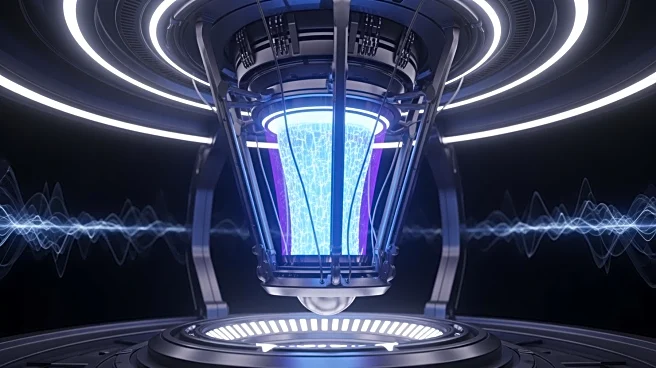What's Happening?
The reconstruction of the Gaza Strip is projected to take decades and cost approximately $70 billion, according to experts. The region has been severely damaged due to two years of military bombardments by Israel, resulting in significant destruction
of infrastructure, including schools, hospitals, and essential services like water and electricity. The United Nations Development Programme has already cleared 81,000 tons of rubble, but the process of rebuilding remains uncertain due to the scale of devastation. The ceasefire agreement between Israel and Hamas allows for increased humanitarian aid, but the logistics of reconstruction, including the removal of unexploded ordnance and rubble, pose significant challenges.
Why It's Important?
The reconstruction of Gaza is crucial for the Palestinian population, who have been living under dire conditions due to the extensive damage. The rebuilding efforts are not only a humanitarian necessity but also a political and economic challenge. The involvement of international partners, including European and Arab nations, Canada, and the U.S., is essential to fund the estimated $70 billion required for reconstruction. The situation highlights the need for a long-term solution to the Israeli-Palestinian conflict, as many potential donors are hesitant to commit funds without progress towards Palestinian statehood. The reconstruction process could also impact regional stability and international relations, particularly with countries like Turkey and Gulf states.
What's Next?
The next steps involve securing funding from international partners and addressing logistical challenges in the reconstruction process. The ceasefire agreement facilitates the entry of humanitarian aid, but the removal of unexploded ordnance and rubble must be prioritized to ensure safe rebuilding. Discussions with potential donors, including oil-rich Arab Gulf states, are ongoing, with some expressing willingness to contribute. However, progress towards Palestinian statehood remains a critical factor for many donors. The reconstruction efforts will require coordination among various stakeholders, including the United Nations, the European Union, and the World Bank, to ensure effective implementation.
Beyond the Headlines
The reconstruction of Gaza presents ethical and legal dimensions, particularly concerning the allegations of genocide against Israel by humanitarian rights groups. The situation underscores the importance of addressing human rights violations and ensuring accountability in conflict zones. Additionally, the rebuilding process could lead to long-term shifts in regional dynamics, influencing political alliances and economic partnerships. The involvement of international donors may also impact diplomatic relations and negotiations related to the Israeli-Palestinian conflict.















